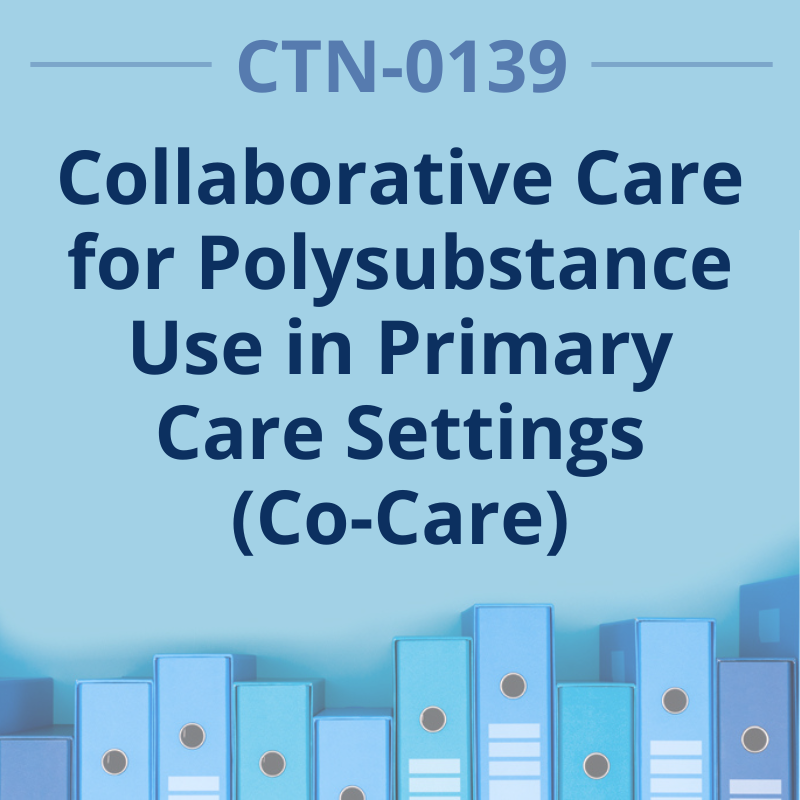CTN-0139: Collaborative Care for Polysubstance use in Primary Care Settings (Co-Care)

Jennifer McNeely, MD, MS
Co-Lead Investigator
New York University School of Medicine
Jennifer.McNeely@nyulangone.org
Jane Liebschutz, MD, MPH, FACP
Co-Lead Investigator
University of Pittsburgh School of Medicine
liebschutzjm@upmc.edu
Although primary care settings can be an ideal context for identifying unhealthy polysubstance use and initiating treatment, in practice few patients are identified, and effective, feasible, evidence-based treatment models are lacking. To address this gap, study investigators plan to test a collaborative care (CC) intervention for patients with complex needs and heightened overdose risk, such as that posed by concurrent use of opioids with sedatives, stimulants, or alcohol. Study aims include 1) testing the effectiveness of the CC intervention for reducing days of polysubstance use over 6 months (primary outcome), and 12 months (secondary outcome) and 2) examining the impact of the CC intervention on the following secondary outcomes: problems related to substance use, SUD severity, overdose risk behavior and events, health-related quality of life, mental health symptoms, receipt of addiction treatment, primary care engagement, and acute care utilization.
Funded by the NIH HEAL InitiativeSM.
Related Resources
Node Involvement
Lead Node(s):
All Participating Nodes: